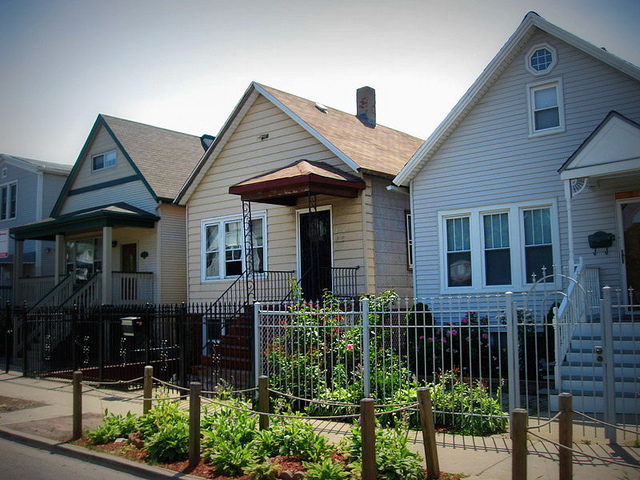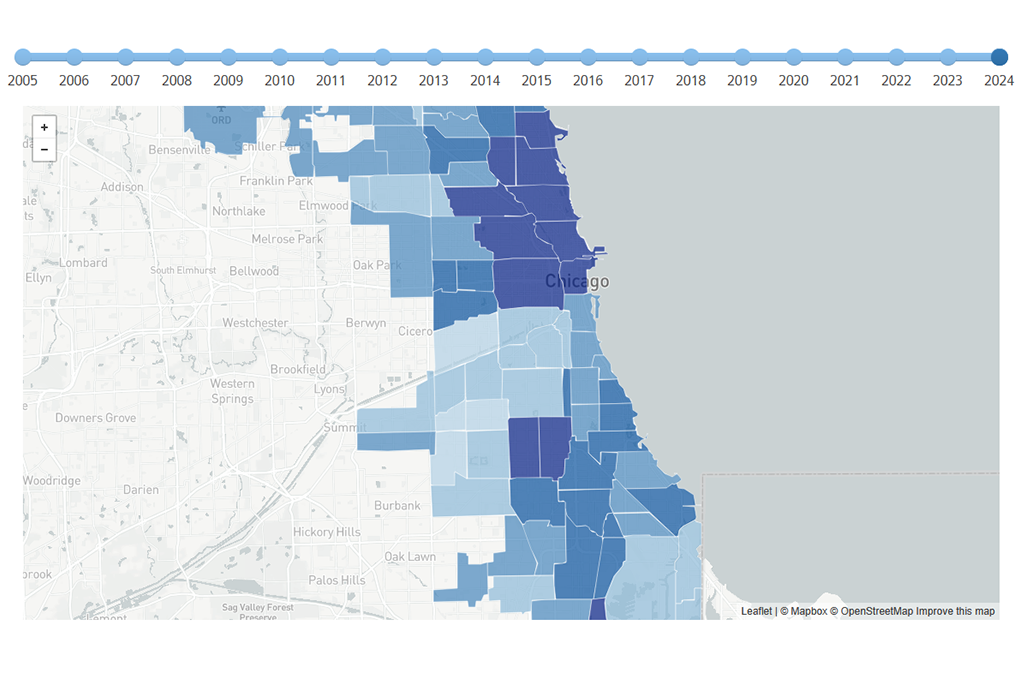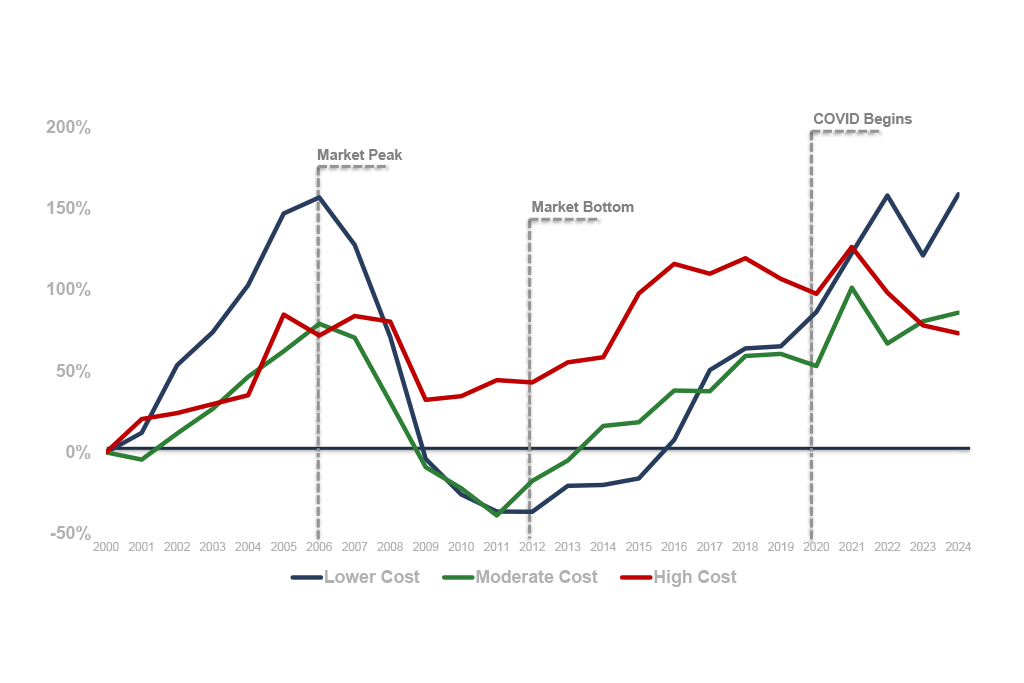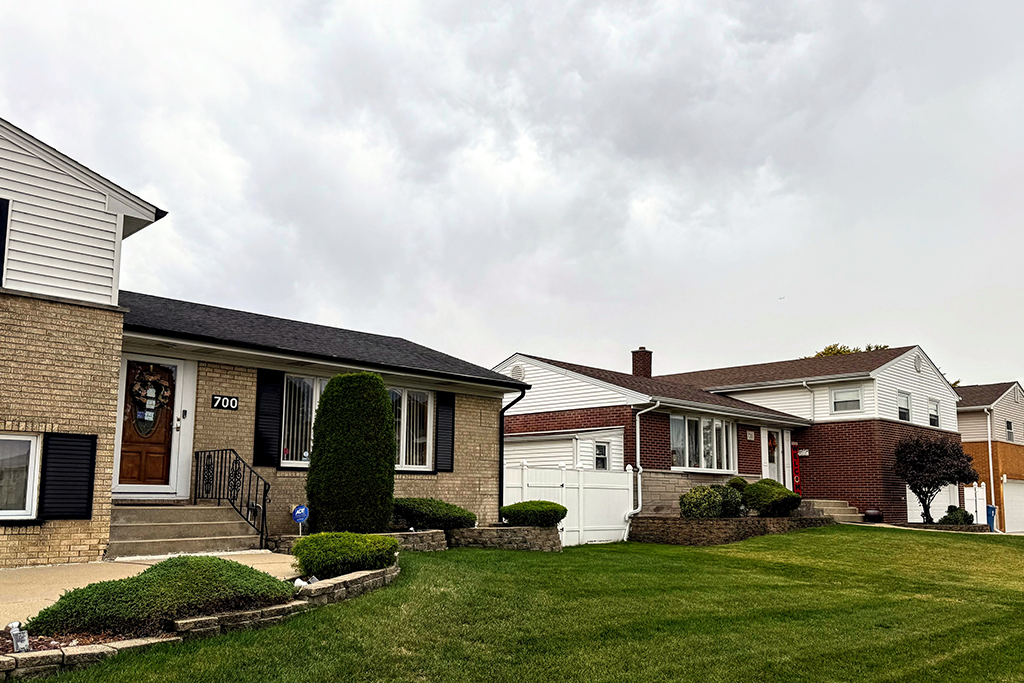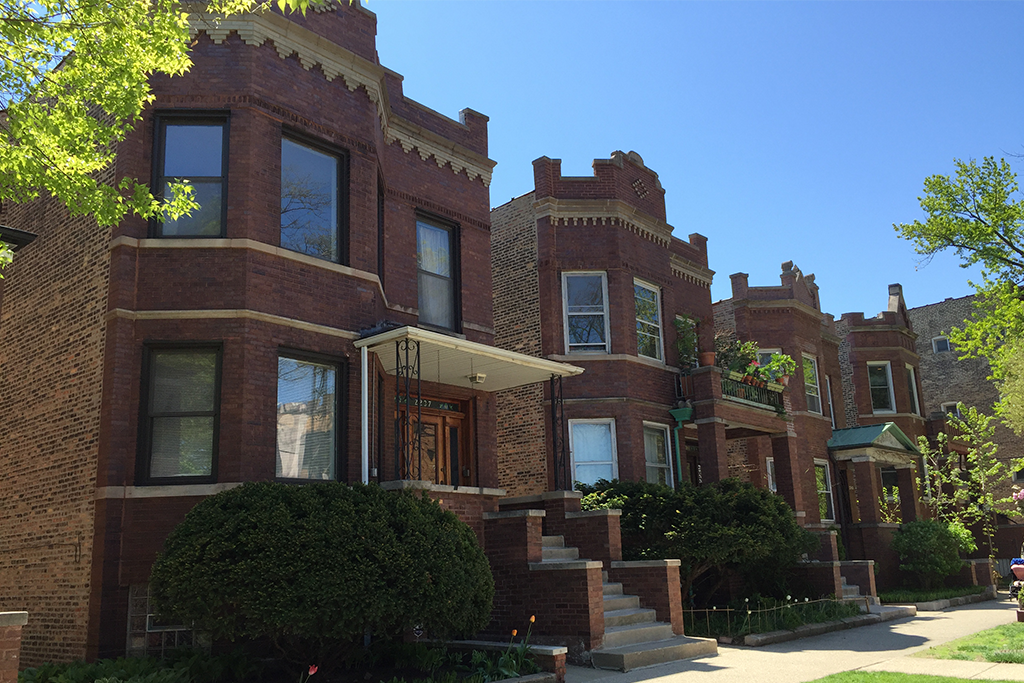Advice on foreclosures gives way to helping first-time homebuyers avoid the financial mistakes of the mortgage crisis.
For years, housing counseling agencies provided critical assistance to homeowners facing foreclosure.
But as our 2014 Housing Market Conditions Report reveals, foreclosures in the Chicago area have dropped significantly. Foreclosure rates in many Chicagoland counties and cities have fallen to pre-crisis levels of 2006 or earlier. IHS spoke with a number of counseling agencies in Illinois to find out whether the frontlines are seeing relief and what's next for the industry.
Across the region, housing counseling agencies say that although their foreclosure departments are active, they have beefed up their homebuying (or prepurchase) services as well.
“Foreclosure counselors have seen a small dip in clients,” said James Rudyk, executive director of Northwest Side Housing Center (NSHC). The HUD-approved nonprofit sees 325 foreclosure clients each year, but 500 first-time homebuyers visited the relatively new prepurchase department last year. The chart below highlights the dramatic rise and fall of foreclosure filing activity in Belmont Cragin, one of NSHC's core neighborhoods, compared to the city of Chicago.
 Foreclosure Filings per 100 Residential Parcels in Belmont-Cragin Foreclosure Filings per 100 Residential Parcels in Belmont-Cragin |
At the Chinese American Service League (CASL) in Chicago's Chinatown, foreclosure work has plummeted “dramatically,” said Ben Lau, manager of housing and financial education. His clients are beginning to enter the market, often looking for bargains among foreclosed stock.
The dozens of Illinois housing counseling agencies—or counseling departments within broader housing organizations—generally serve low- and moderate-income clients. For the past four years, HUD has awarded around $40 million annually in grants to counseling agencies, with heavier funding in 2009 and 2010. Neighborworks also distributes grants specifically for foreclosure counseling. Each recent round of that funding has been lower than the previous year, with the latest totaling $44.8 million, compared to $180 million in 2008.
A number of circumstances can lead clients to a counseling agency. In some cases, mortgage servicers refer people who are behind on payments to HUD-approved agencies. In addition, several grant providers who offer down payment assistance require first-time homebuyers to receive eight hours of financial education from a counseling agency. Prepurchase counselors do not have a financial interest in their clients’ decisions, working instead to determine whether a family or individual is prepared to buy a home, said Sharon Legenza, executive director of Housing Action Illinois, an affordable housing advocacy coalition with more than 50 counseling agency members.
Lately, Legenza has witnessed a heavier focus on down-payment assistance programs, credit-repair counseling, and general budgeting assistance. Prepurchase counseling can also include help with loan applications and home inspections.
In some cases, the bulk of homebuyer counseling is general financial education.
“It’s how you think about savings, credit, and earning wages,” Legenza said. “Housing is a huge part of it, but it’s also taking a few steps back to say: If people want to own a house or get into a sustainable rental situation, what does that mean, and what do they need to have in their skill set?”
Research shows that this counseling makes a difference. Those who have gone through counseling are less likely to lose their homes to foreclosure, less likely to miss mortgage payments, and more likely to get connected to safer and more affordable mortgages.
At Mid Central Community Action (MCCA), based in Bloomington, IL, housing counseling is one element of a “bundled services” model. Based on the Financial Opportunity Center model, MCCA’s bundle includes financial coaching, career development, and a partnership with the local community college.
Hurdles to homebuying vary area to area, but typical challenges include making down payments and having solid credit. After the foreclosure crisis, banks tightened their underwriting criteria. Across all Chicago metro area counties, mortgage lending is down by at least two-thirds compared with pre-crisis levels. In 2014, Cook County, saw 7.5 mortgages per 100 residential parcels, a sharp drop from the 25.9 in 2005. In CASL’s Armour Square neighborhood, there were 13.2 mortgages per 100 residential parcels in 2005 but only 4.5 in 2014. In Belmont-Cragin, where NSHC is located, the difference is even more severe—39.9 in 2005 and 6.7 in 2014. (Compare mortgage activity in other neighborhoods on our data portal.) Chicago’s lending trends mirror national patterns, where lending levels reached post-recession lows.
Credit building is the biggest challenge for Lau’s clients, many of whom are new immigrants who have little or no credit or documented income. “When they go to see mortgage specialists in banks, they have to provide at least two years of income,” he said. “There are a number of existing bank projects that can help clients build credit, but for some you have to deposit at least $500.”
CASL, in partnership with Mission Asset Fund, helps clients form lending circles, where each member need contribute as little as $50 a month. Each month one member is permitted to withdraw a loan to help build credit history.
Where agencies’ clients are looking to buy depends on the population. At NSHC, Rudyk said, the generally urban Latino clientele is increasingly turning to the suburbs, signifying a shift in a decades-long trend.
“Even our neighborhood, which was considered affordable, is not as affordable anymore,” said Rudyk, whose organization is located on West Diversey Avenue.
At CASL, however, more than 80 percent of clients want to buy a home in or near Chinatown.
In addition to prepurchase help, the agency provides rental assistance. That department has experienced an uptick in requests recently, Lau said. CASL is among the many organizations that have begun to focus on low-income renters, including many affected by the foreclosure crisis, Legenza said.
In mid-central Illinois, however, a limited supply of low-cost rental units means it often makes more sense for residents to buy, said Jenna Kearns, MCCA’s director of housing opportunities. MCCA’s anecdotal data buck national trends. Whereas many millennials are postponing homebuying, Kearns’ clients are typically 25 to 31 years old.
“Our community is very family-focused,” Kearns said. “You work at big corporations with big office type jobs. I think there are a lot of people that want to be homeowners.”
Despite the increase in prepurchase activity, many counselors said foreclosure help must remain a priority. At MCCA, daily foreclosure counseling calls are a thing of the past, but the agency still fields two to three a week, said financial coach Kathy Shubert.
“There’s still a need for housing counseling agencies and policymakers to realize we still have thousands of families going through the foreclosure process,” Legenza said. “We have to have some resources dedicated to helping families in foreclosure or to avoid going into default.” Interest rates on some federal anti-foreclosure programs, such as the Home Affordable Modification Program, are slated to reset at the five-year mark, and there is concern that some people will default again, Legenza said.
“We unfortunately suffer from foreclosure fatigue,” Rudyk said. “It’s no longer sexy and the storm’s over. But we’re definitely not there, we still have work to do.”
Photo/LP
